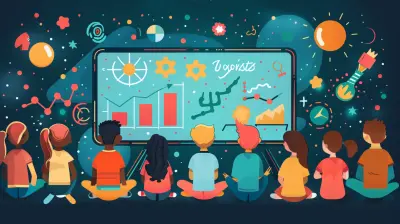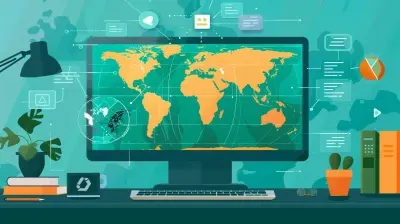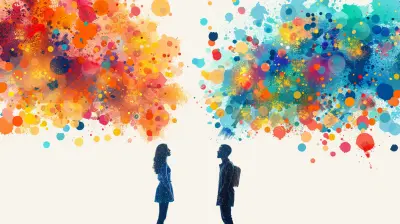The Age of Exploration: Discovering New Worlds
6 November 2025
Ever wondered how the modern world became so interconnected? Well, buckle up because we’re about to take a wild ride back in time — to a thrilling era known as the Age of Exploration. This was a game-changing period when fearless sailors left the safety of their shores, not knowing what lay beyond the horizon, just to answer the burning question: “What’s out there?”
From legendary expeditions to the birth of global trade and the clash of civilizations, the Age of Exploration cracked the world wide open. It wasn’t just about maps and compasses; it was a time of ambition, risk, greed, curiosity, and sometimes terrible consequences. So, let’s dive into what really went down during this golden age of discovery and why it still matters today.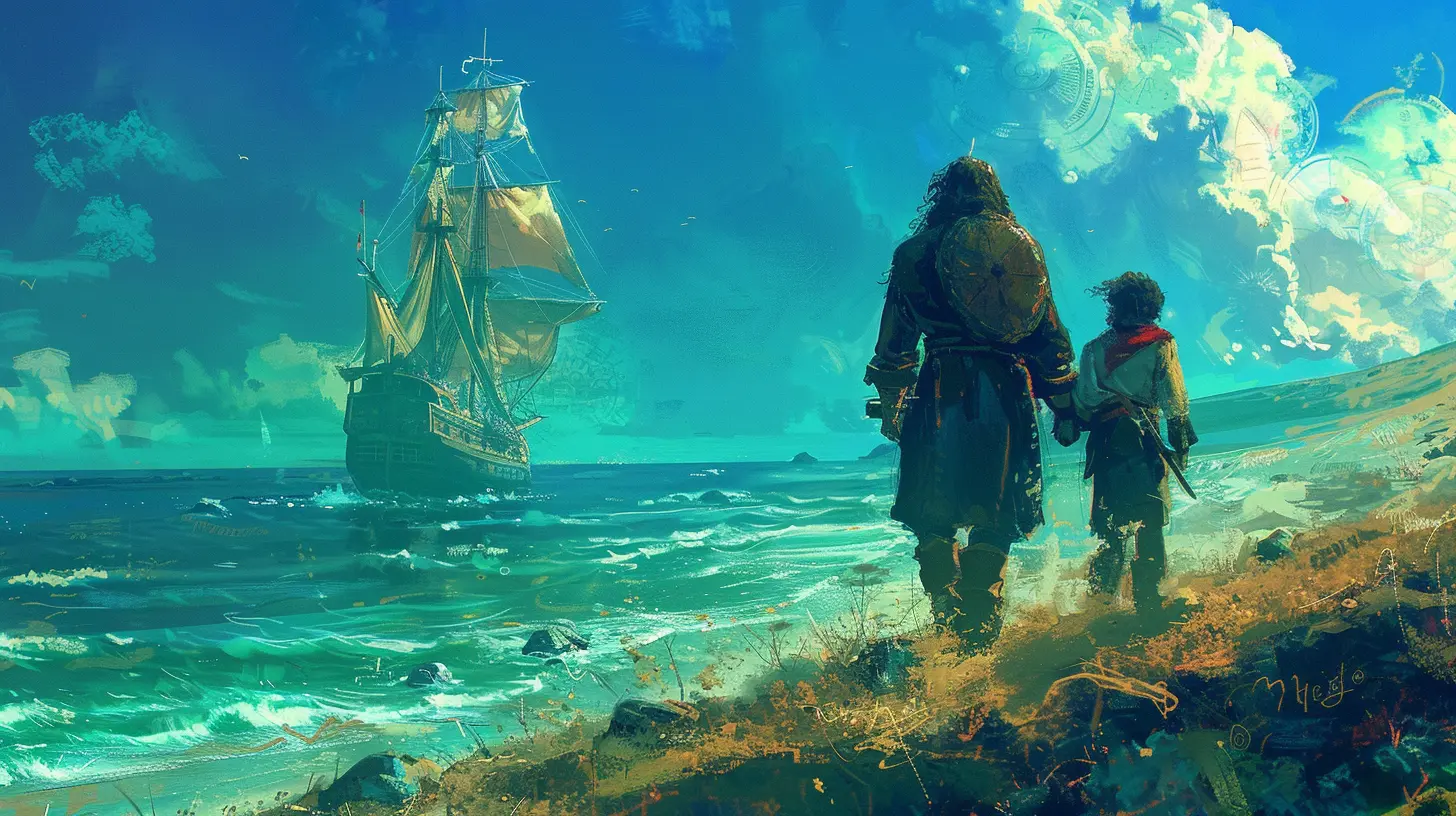
What Was the Age of Exploration?
Alright, let’s start with the basics. The Age of Exploration — also known as the Age of Discovery — spanned roughly from the early 15th century to the 17th century. We're talking about a few hundred years of non-stop maritime expeditions across uncharted waters.During this period, European powers (like Portugal, Spain, England, France, and the Netherlands) sent out ships to find new trade routes, search for exotic goods, and claim land. Some were in it for spices, some for gold, and many for glory. But most of all? Everyone wanted a bigger slice of the world’s pie.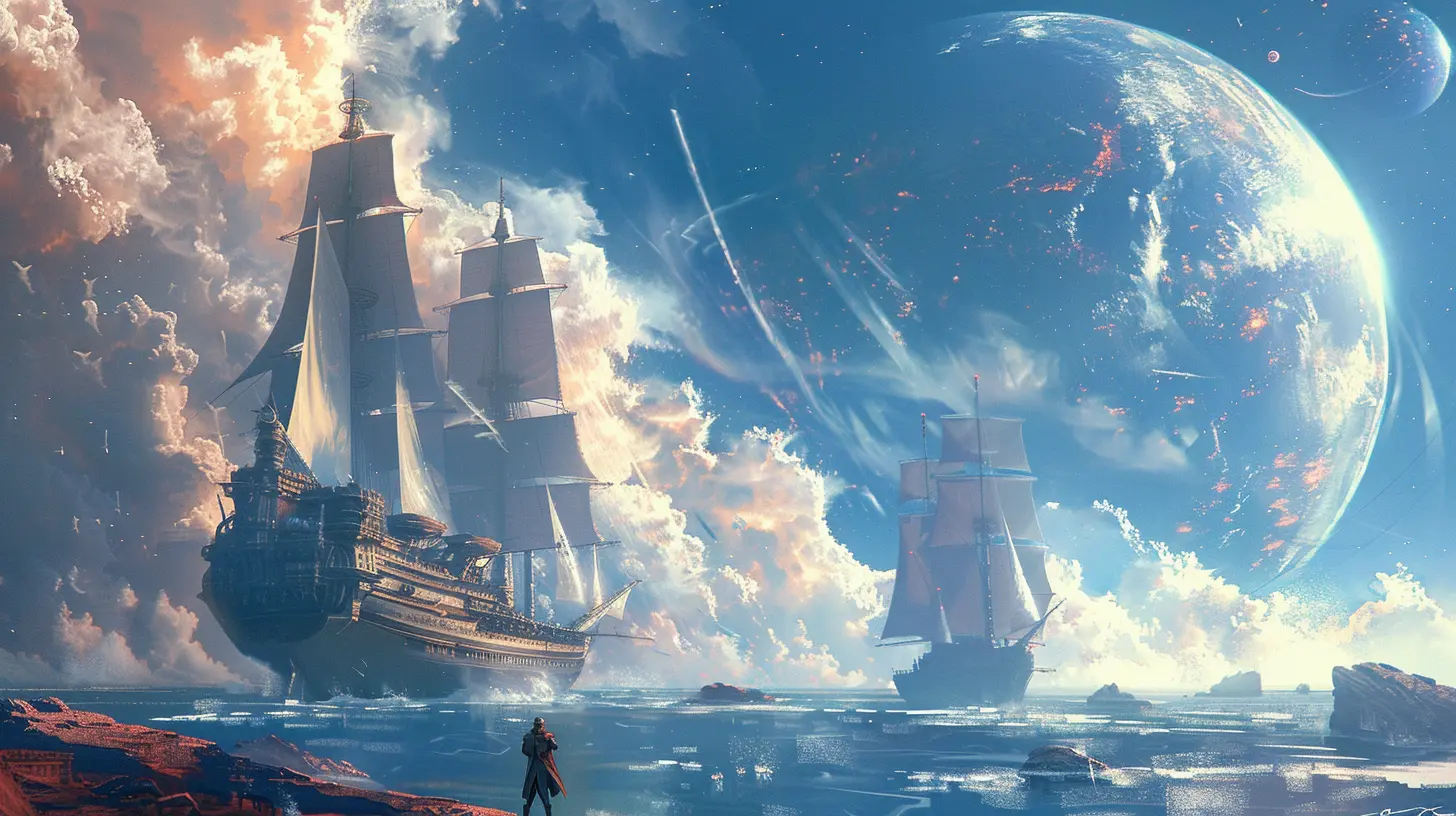
Why Did Exploration Explode in the 15th Century?
You might be thinking: why then? What made the 1400s the golden ticket to adventure? Good question.Several factors lit the fuse:
- Trade Troubles: The Silk Road was getting risky and long. Overland routes to Asia were expensive and often blocked due to conflicts.
- Fall of Constantinople: When this city fell in 1453, it cut off many traditional land trade routes to the East.
- Hunger for Spices: Europeans were obsessed with spices like pepper, cloves, and cinnamon. These weren’t just flavor enhancers — they preserved food and flexed wealth.
- New Tech: Inventions like the astrolabe, improved maps, and the caravel (a nimble, wind-catching ship) made sea travel less of a death wish.
- Religious Zeal: Spreading Christianity was also a big motivator. Many explorers sailed under the banner of faith.
So yeah, mix desperation, ambition, and a touch of divine duty, and you've got a perfect storm for turning sailors into trailblazers.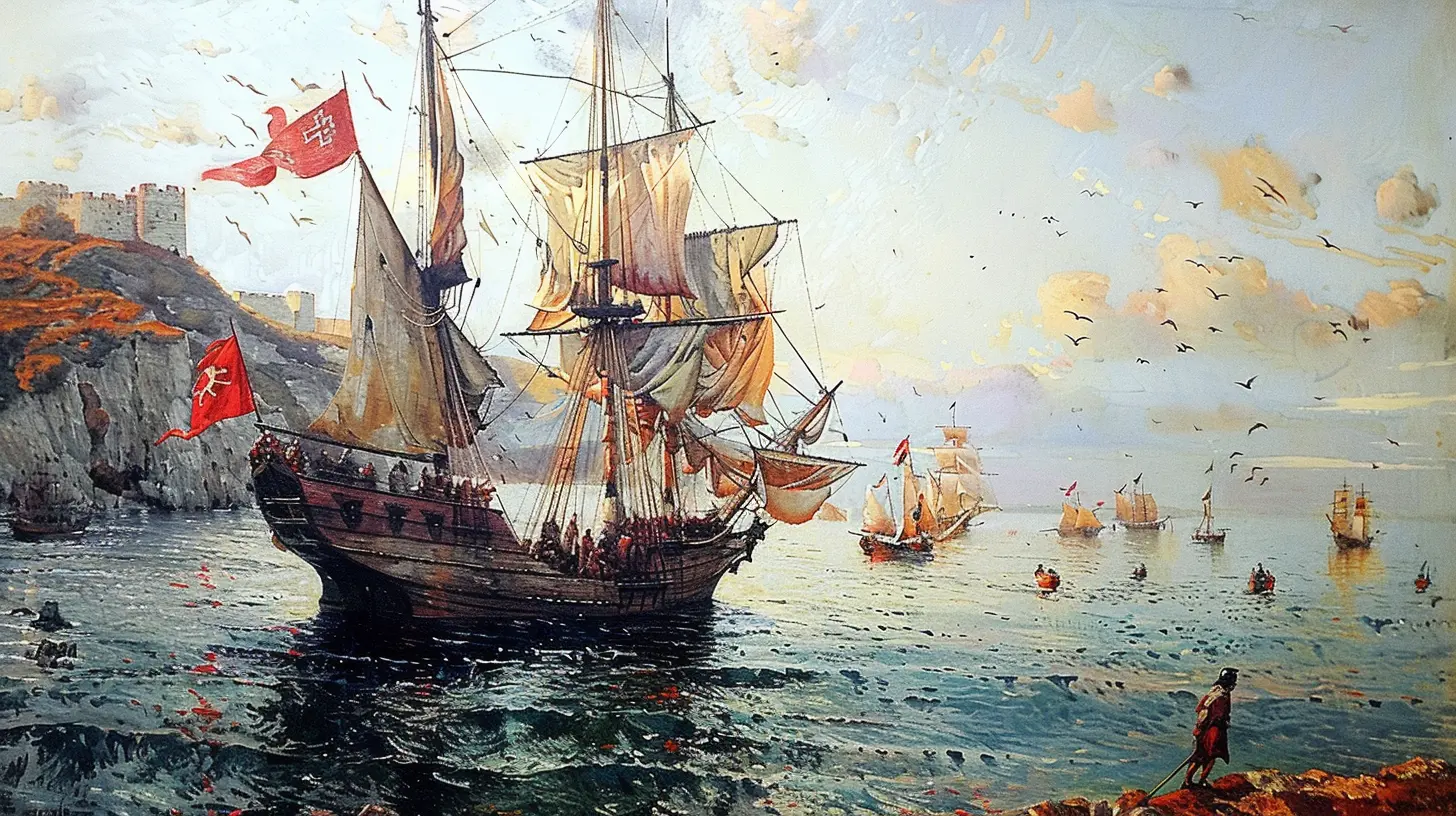
Who Were the Heavy Hitters?
Let’s put some names to those sails, shall we? Here are a few rockstars of the Age of Exploration:1. Christopher Columbus (Spain)
You probably know this guy. In 1492, he sailed west in search of Asia and instead bumped into the Americas. Sure, he wasn’t the first to land there (looking at you, Vikings), but he did kick-start centuries of European colonization — and controversy.2. Vasco da Gama (Portugal)
Da Gama took off around Africa and reached India in 1498. This was a huge moment — finally, a sea route to the East! He brought back spices that sold for a fortune, cementing Portugal’s place in the trade game.3. Ferdinand Magellan (Spain)
Magellan's crew (not him — sadly, he died en route) made the first circumnavigation of the globe. That’s right — they sailed around the entire planet. Talk about going the extra mile.4. John Cabot (England)
Cabot explored parts of North America under the English crown, laying the groundwork for British claims in the New World.5. Hernán Cortés & Francisco Pizarro (Spain)
These guys weren’t your typical explorers. They were conquistadors — conquerors. Cortés brought down the mighty Aztec Empire in Mexico; Pizarro dismantled the Incan Empire in Peru. And they did it with shockingly small forces, using cunning, firearms, and, sadly, disease as unintentional weapons.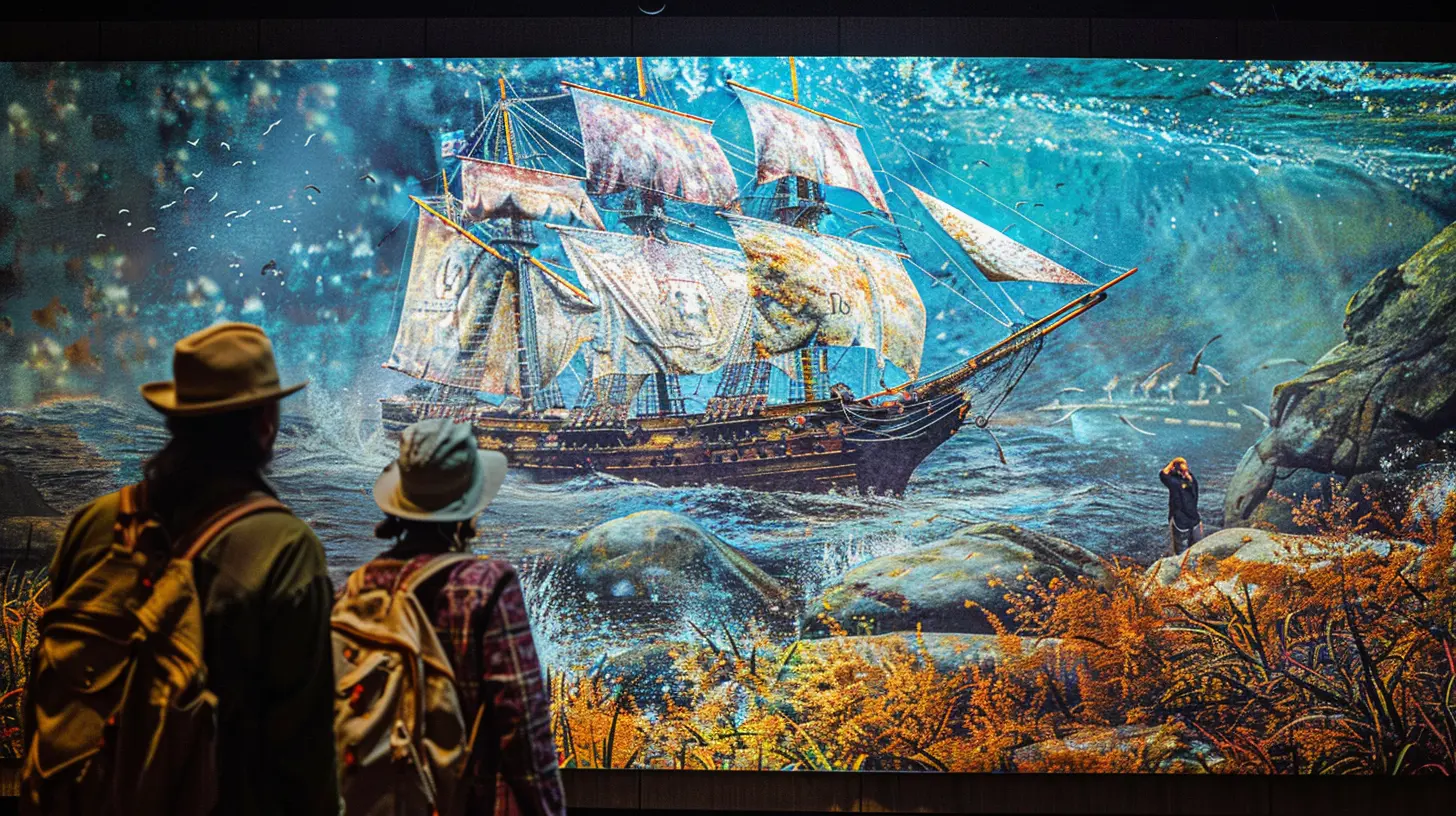
Not All Sunshine and Sea Breezes
Okay, let’s hit pause on the epic tales for a second. The Age of Exploration wasn’t all heroic and noble. In fact, a lot of it was downright dark.When Europeans arrived in the Americas, Africa, and Asia, things got messy — fast. Indigenous populations were decimated by diseases like smallpox, measles, and influenza. We’re talking millions of lives lost.
And then there’s colonization, enslavement, and exploitation. Europeans took land, resources, and people. Entire cultures were uprooted. The Transatlantic Slave Trade? Yep — that took off during this time too.
So while maps were being filled in with newfound lands, countless lives and civilizations were being erased or forever changed.
New Worlds, New Goods
Despite the pain and tragedy, global exchange did bring some massive changes — good and bad.Ever heard of the Columbian Exchange? This was the massive swap of plants, animals, people, and ideas between the Old World (Europe, Asia, Africa) and the New World (the Americas).
Here are a few highlights:
- From the Americas to Europe: potatoes, tomatoes, corn, cocoa, and tobacco.
- From Europe to the Americas: wheat, horses, pigs, and coffee.
- Diseases (unfortunately) also traded places — and they didn’t carry passports.
Our diets, economies, and cultures today were radically shaped by these exchanges. Imagine Italian food without tomatoes or Irish cuisine without potatoes!
The Race for Empires
Exploration didn’t stop at just discovering land. Soon, Europe was in a full-blown race for empire-building.By the 1600s and 1700s, global colonial empires were forming. Spain ruled much of South and Central America. Portugal snagged Brazil and parts of Africa and Asia. France and England battled it out in North America, the Caribbean, and India.
This wasn't just a land grab though — it was about who controlled the trade routes and who had the most power and influence.
Long-Term Impacts
You know what’s crazy? The ripple effects of the Age of Exploration are still rocking the world today.1. Globalization Began
Today’s interconnected economies? They trace their roots back to the first global trade routes developed during this time. Goods, people, and ideas flowed more than ever before.2. Cultural Exchange
Languages, religions, and food spread far and wide. Think about how Spanish is spoken across Latin America or how African rhythms shaped Caribbean music.3. Scientific Curiosity Grew
Having access to new lands, animals, and plants fueled scientific inquiry. The seeds of the Enlightenment and the Scientific Revolution were sown during this age of discovery.4. Power Shifts
Europe rose as the dominant force globally. That reshuffling of global power still affects geopolitics today.The Other Side of the Coin
Let’s not forget the long-term pain:- Indigenous populations in the Americas were nearly wiped out.
- African societies were torn apart by the slave trade.
- Many former colonies are still grappling with economic and political instability tied to their colonized pasts.
So, while the Age of Exploration opened the door to the modern world, it left some heavy baggage behind.
Wrapping It All Up
So, was the Age of Exploration a heroic age of daring adventurers or a tragic chapter of conquest and exploitation? Honestly, it was both.It’s a story of incredible human curiosity and courage — of people willing to risk everything to uncover the unknown. But it’s also a cautionary tale, a brutal reminder of what unchecked greed and power can do.
It changed the world. Literally. Borders shifted, economies exploded, and cultures collided. Our modern world — with all its connections, conflicts, flavors, and technology — owes a lot to those brave (and sometimes brutal) voyages across the sea.
The Age of Exploration may have ended centuries ago, but its legacy? That’s still sailing strong.
Curious to Learn More?
If this sparked your interest, you might want to check out:- Journals of explorers like Columbus and Magellan
- Documentaries on the Columbian Exchange
- Books on indigenous perspectives and the impact of colonization
History isn’t just about dates and dead people — it’s about real lives, big risks, and the choices that shape our present.
all images in this post were generated using AI tools
Category:
History LessonsAuthor:

Zoe McKay
Discussion
rate this article
1 comments
Katherine Jacobs
The Age of Exploration marked a pivotal period in history, expanding geographic knowledge and cultural exchange while also leading to significant consequences for indigenous populations and global trade dynamics.
November 10, 2025 at 3:26 AM

Zoe McKay
Thank you for highlighting the dual impact of the Age of Exploration. It's essential to recognize both the advancements in knowledge and the profound effects on indigenous cultures and global trade.
